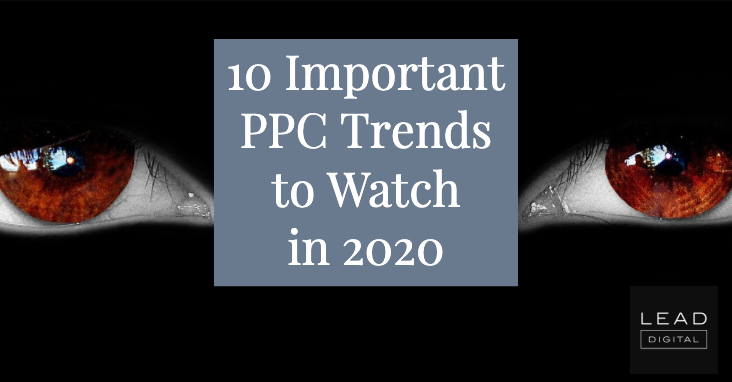 What does the future hold for PPC?
What does the future hold for PPC?
This is a question we ask every year here at Search Engine Journal.
Last year, audiences and automation were just a couple trends PPC marketing experts expected to dominate.
But what will be the most important PPC trends in 2020?
That’s the exact question I asked 39 of the top PPC marketing experts.
Here are the top 10 PPC trends you need to know for 2020 – from paid search, to paid social, to remarketing, and beyond – according to the experts.
1. Less Control: Automation, AI & Machine Learning
Automation is the biggest PPC trend of 2020. It seems to be on the mind of nearly every PPC marketer.
Julie Friedman Bacchini, President & Founder, Neptune Moon, thinks the automation and machine learning train will continue picking up speed in 2020.
“The key for paid search pros will be figuring out how to use these tools/features as effectively as possible, while also retaining our value by doing things the machines cannot do,” she said.
Ed Leake, Managing Director, Midas Media, said similar, noting that machines and artificial intelligence can produce judgments and perform routine tasks faster than humans.
“That means if you’re not at least using some form of rules or scripts in your workflow, you’re way behind,” Leake said. “You might have heard of the Eisenhower Matrix. Using that principle, start with the one thankless task you do regularly. In other words, it takes a lot of time and it has a small impact on results. Take that task and find a machine to do it for you.”
Jeff Ferguson, CEO, Fang Marketing, said PPC managers will finally learn their place in the new world order of digital advertising in 2020 – to provide a clean working environment for their robot overlords.
“The role of the PPC manager will not go away for at least another five years, but the days of spending hours tweaking bids are gone,” Ferguson said. “Keywords aren’t going anywhere anytime soon – the robots still need us to speak to the other humans properly; however, whatever can be made into a math problem is now the domain of the machines.”
A couple of experts talked about the loss of control due to automation, and what it means.
Jon Clark, Managing Partner, Moving Traffic Media, expects the trend of decreased control to continue as Google pushes users toward automation and minimized transparency. He speculated that we may even see manual bidding removed entirely in favor of automation.
Also, Brad Geddes, Co-Founder, AdAlysis, said:
“We’re going to see Google continue to take control away from advertisers in the name of ‘better targeting & intent’. Unfortunately, Google has not figured out intent in any meaningful way, so these changes will leave you with more work to do in order to keep seeing the same results.”
Some experts expect some pushback against Google’s continued drive toward automation.
“While Google will introduce more audience capabilities and more automation, advertisers are becoming leery of Google’s automation and won’t as blindly adopt it but rather dip their toes into Google’s new features to see if they really work as intended,” Geddes said. “This will leave more advertisers to create automation on their own or leverage third-party automation and evaluation systems. We’ll see automation continue to rise, however, Google won’t always be the one driving these changes.”
Andrew Lolk, Lead PPC Manager & Founder, Savvy Revenue, said he’s not ready to just hand over accounts to Google’s automation.
“I don’t advise outright rejecting Google’s automation, but knowing its strengths and weaknesses intimately instead,” Lolk said. “By knowing the weaknesses in Google’s automation, you’ll know what to do to beat other advertisers that aren’t privy to it.”
According to Nikki Kuhlman, Senior Account Director, JumpFly, it comes down to this:
“What marketers will need to do is be the gatekeepers on whether these automated options are best for the clients or best for Google.”
Aaron Levy, Group Director, SEM, Tinuiti, is hopeful that 2020 will be a year of automation refinement, where the engines and tool partners will take time to get the automation right.
“They want to make sure that us advertisers are set up for success, for growth and to devote our headspace to strategy rather than pushing buttons,” Levy said. “All aided by the help of great data.” – Read more



